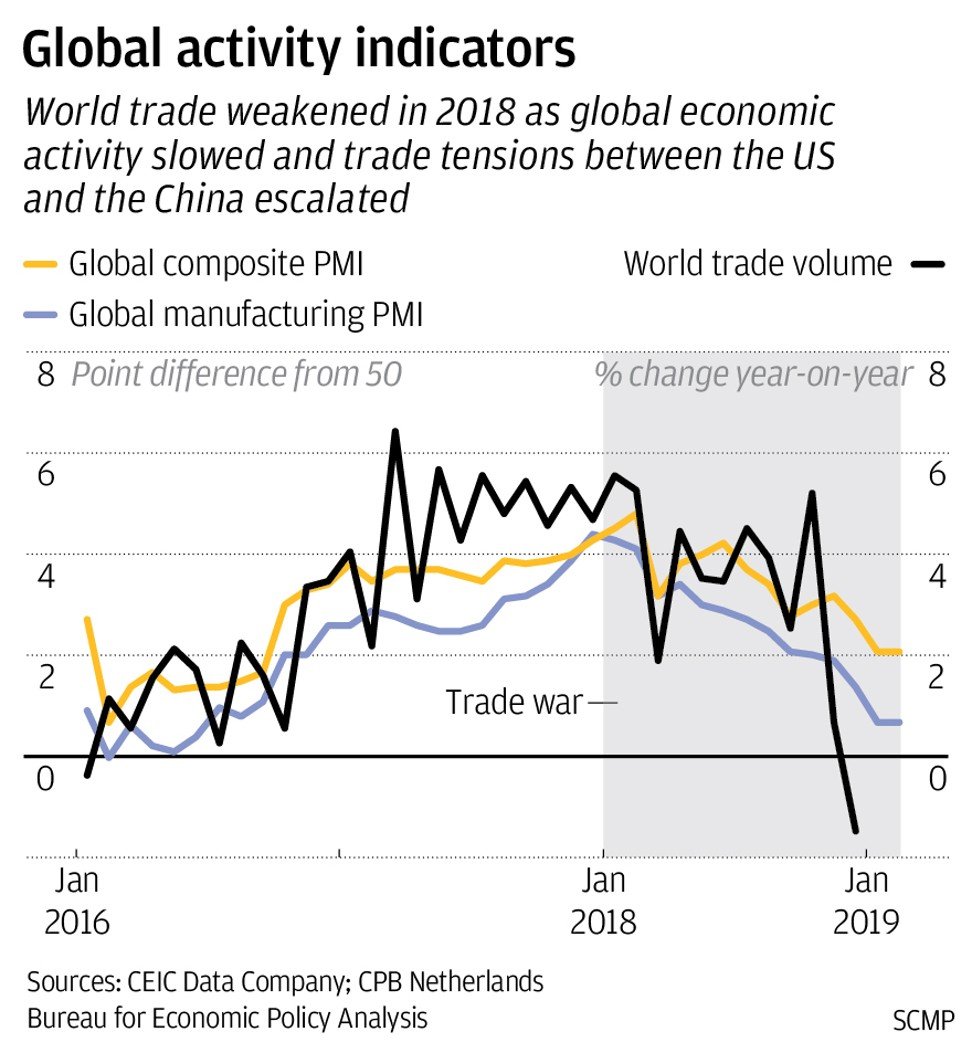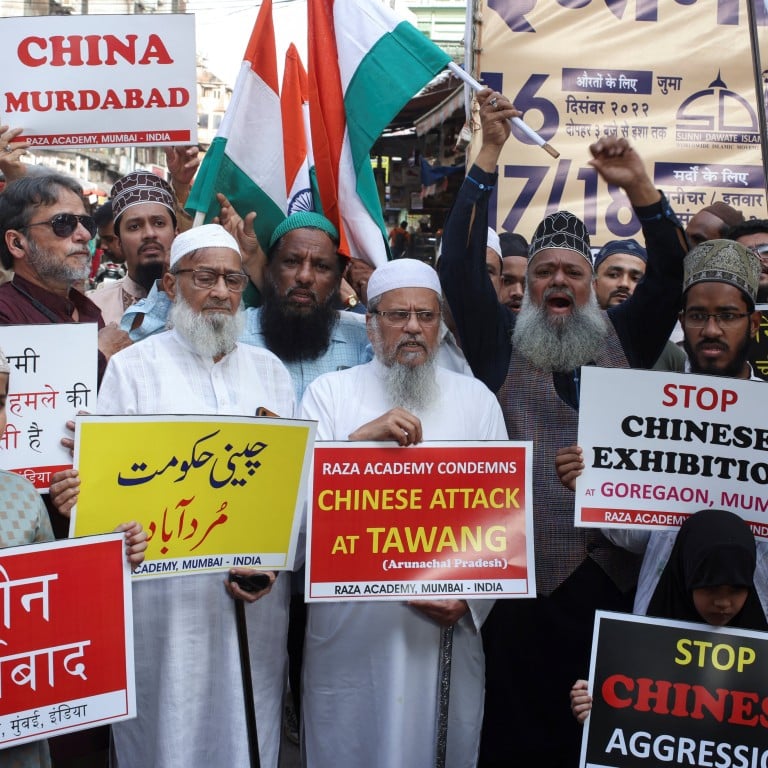Assessing China's Economic Resilience Amidst The US Trade War

Table of Contents
The US-China trade war, a period of intense economic friction spanning several years, served as a significant test of China's economic resilience. This period of escalating tariffs and trade disputes significantly impacted global markets, and China, as a major trading partner, felt the effects acutely. This article assesses how China navigated this challenging period, analyzing the key factors that contributed to its economic performance and highlighting the persistent challenges that remain. We will delve into the impact of tariffs, examine China's strategic diversification efforts, and explore the long-term implications for both China and the global trading landscape.
The Impact of US Tariffs on China's Economy
Disrupted Supply Chains and Export Dependence
The US tariffs, primarily targeting Chinese manufactured goods and agricultural products, immediately disrupted established supply chains. This had a particularly severe impact on several key sectors:
- Manufacturing: Industries such as electronics, textiles, and machinery experienced significant export slowdowns as US demand decreased. The tariff impact led to decreased profitability and, in some cases, factory closures.
- Agriculture: Chinese agricultural exports, including soybeans and pork, faced substantial challenges accessing the US market, leading to price drops and losses for farmers.
- Technology: The trade war intensified existing tensions regarding technology transfer and intellectual property, further impacting Chinese tech companies' access to global markets.
The initial shock resulted in a short-term economic slowdown, reflected in a decline in GDP growth and export figures. Data from the period shows a noticeable decrease in Chinese exports to the US, highlighting the vulnerability of its export-oriented economy. The impact on Chinese employment, particularly in manufacturing hubs, was also considerable, leading to job losses and social unrest in some regions. Understanding this tariff impact and the subsequent supply chain disruption is crucial to analyzing China's overall response.
Government Response and Stimulus Measures
Faced with the economic consequences of the trade war, the Chinese government implemented a range of policy measures to mitigate the negative effects. These included:
- Fiscal Stimulus Packages: Significant investments were made in infrastructure projects, aiming to boost domestic demand and create jobs. These included expansive high-speed rail projects and investments in renewable energy infrastructure.
- Monetary Policy Adjustments: Interest rate cuts and increased liquidity were employed to encourage lending and investment, stimulating economic activity.
- Targeted Support for Affected Industries: Specific policies were implemented to support struggling industries, such as providing subsidies to farmers and offering tax breaks to manufacturers.
The effectiveness of these government interventions in stabilizing the economy is a subject of ongoing debate. While the stimulus packages undoubtedly helped to mitigate the immediate economic downturn, concerns remain about the long-term sustainability of this approach, particularly regarding the accumulation of government debt. Analyzing the effectiveness of these measures requires a careful examination of both short-term and long-term economic indicators.
China's Strategies for Economic Diversification and Resilience
Focus on Domestic Consumption and Reduced Reliance on Exports
Recognizing the risks associated with excessive reliance on exports, China actively pursued strategies to boost domestic consumption:
- Income Growth Initiatives: Policies focused on raising disposable incomes for the middle class, encouraging increased spending on goods and services.
- Development of Domestic Brands: Support for the growth of domestic brands and businesses to reduce dependence on foreign goods.
- Infrastructure Investment for Consumption: Investments in transportation, logistics, and other infrastructure to support a robust domestic market.
These efforts showed some success in shifting the balance towards domestic consumption, contributing to a more resilient economic model. Data on consumer spending growth during and after the trade war provides evidence of this shift, though full independence from external markets remains a long-term objective.
Investment in Technological Innovation and Infrastructure
China's commitment to technological innovation and infrastructure development played a significant role in bolstering its economic resilience:
- Made in China 2025: This initiative aimed to upgrade the country's manufacturing capabilities and achieve technological self-sufficiency in key sectors.
- 5G Deployment: Massive investment in 5G infrastructure development positioned China at the forefront of this technology, creating new industries and jobs.
- High-Speed Rail Expansion: Continued expansion of the high-speed rail network boosted connectivity and facilitated economic activity across the country.
These investments not only addressed immediate challenges posed by the trade war but also laid the groundwork for long-term economic growth and technological leadership. This proactive approach to technological advancement and strategic infrastructure development proved critical in adapting to the changing global economic landscape.
Long-Term Implications and Future Challenges
Geopolitical Risks and the Shifting Global Landscape
The US-China trade war highlighted the growing geopolitical risks and the increasingly complex nature of global trade relations:
- Ongoing Tensions: The lingering tension between the US and China continues to present uncertainty for both economies and global markets.
- Rising Protectionism: The trade war underscored the rise of protectionist sentiments worldwide, posing challenges to free trade and global economic integration.
- Economic Uncertainty: The fluctuating relationship between the US and China introduces substantial uncertainty for businesses involved in international trade.
Navigating these geopolitical risks requires careful strategic planning and a proactive approach to adapting to the changing global landscape.
Maintaining Economic Stability and Sustainable Growth
Despite its resilience, China faces several challenges in maintaining economic stability and achieving sustainable growth:
- Debt Management: The government's substantial investment in stimulus packages has led to increased debt levels, presenting a potential risk to financial stability.
- Structural Reforms: Continued economic reform and structural adjustments are necessary to address underlying challenges and ensure long-term sustainable growth.
- Environmental Concerns: Balancing economic growth with environmental sustainability is crucial for long-term development.
Addressing these challenges requires a comprehensive approach encompassing financial prudence, effective policy reforms, and a commitment to environmentally conscious development.
Conclusion
This analysis demonstrates that while the US trade war presented significant challenges to China's economy, it also acted as a catalyst for diversification and showcased a remarkable level of economic resilience. The Chinese government's swift and multifaceted response, incorporating stimulus packages and a strategic shift towards domestic consumption, played a crucial role in mitigating the negative impacts. However, the long-term implications of the trade war and the ongoing geopolitical landscape necessitate continued vigilance and adaptation.
Understanding China's economic resilience amidst the US trade war is paramount for navigating the intricacies of global trade. Further research into China's evolving economic strategies and the persistent effects of the trade dispute is vital for businesses and policymakers seeking to understand and respond effectively to the evolving dynamics of the global economy. Continue exploring the multifaceted aspects of China's economic resilience to gain a deeper understanding of this dynamic landscape.

Featured Posts
-
 Loyle Carner To Play 3 Arena Concert Details Announced
May 03, 2025
Loyle Carner To Play 3 Arena Concert Details Announced
May 03, 2025 -
 Nebraskas Successful Voter Id Campaign A National Model
May 03, 2025
Nebraskas Successful Voter Id Campaign A National Model
May 03, 2025 -
 Macron Avertit Israel Contre La Militarisation De L Aide Humanitaire A Gaza
May 03, 2025
Macron Avertit Israel Contre La Militarisation De L Aide Humanitaire A Gaza
May 03, 2025 -
 Gaza Macron Critique Le Risque De Militarisation De L Aide Humanitaire Par Israel
May 03, 2025
Gaza Macron Critique Le Risque De Militarisation De L Aide Humanitaire Par Israel
May 03, 2025 -
 Manfaatkan Cangkang Telur Pupuk Alami Dan Suplemen Nutrisi Untuk Pertumbuhan Optimal
May 03, 2025
Manfaatkan Cangkang Telur Pupuk Alami Dan Suplemen Nutrisi Untuk Pertumbuhan Optimal
May 03, 2025
Latest Posts
-
 Medvedev Analisi Della Sua Posizione Sulla Russofobia E L Arma Nucleare
May 03, 2025
Medvedev Analisi Della Sua Posizione Sulla Russofobia E L Arma Nucleare
May 03, 2025 -
 La Retorica Nucleare Di Medvedev E Le Tensioni Con L Unione Europea
May 03, 2025
La Retorica Nucleare Di Medvedev E Le Tensioni Con L Unione Europea
May 03, 2025 -
 Political Clash Farage And Lowe Trade Accusations
May 03, 2025
Political Clash Farage And Lowe Trade Accusations
May 03, 2025 -
 Medvedev Missili Nucleari E La Crisi Della Russofobia In Europa
May 03, 2025
Medvedev Missili Nucleari E La Crisi Della Russofobia In Europa
May 03, 2025 -
 Public Spat Erupts Between Nigel Farage And Rupert Lowe
May 03, 2025
Public Spat Erupts Between Nigel Farage And Rupert Lowe
May 03, 2025
